What Is THCA? THCA vs THC 101
Share
Explore what is THCA and understand THCA vs THC, including their effects, benefits, and legal status in our detailed guide. Have you tried our THCA pre rolls?
Welcome to our deep dive into the world of cannabis, where today we’re zeroing in on a lesser-known but incredibly intriguing component: THCA.
You might have heard of THC, but THCA? That’s a different story, and trust me, it’s a fascinating one!
So, let's unpack the details and get to know THCA a bit better.
Understanding THCA in the Cannabis World
THCA, or tetrahydrocannabinolic acid, is a natural compound found in the raw cannabis plant. It’s actually the acidic precursor to the famous THC (tetrahydrocannabinol) that most people are familiar with.
When the cannabis plant grows, it produces THCA, which doesn’t affect you the same way THC does—more on that later. For now, let's think of THCA as the raw, unheated version of THC.
What Is THCA?
So, diving deeper, what exactly is THCA? As mentioned, THCA is the non-psychoactive precursor to THC. This means that on its own, THCA does not produce the 'high' associated with THC.
Only when it's exposed to heat, through a process called decarboxylation, does THCA transform into THC. This can happen through baking, smoking, or vaporizing the cannabis plant.
THCA is found in the highest concentrations in fresh cannabis leaves and flowers, which is why some people choose to juice raw cannabis for its potential health benefits without experiencing psychoactive effects.
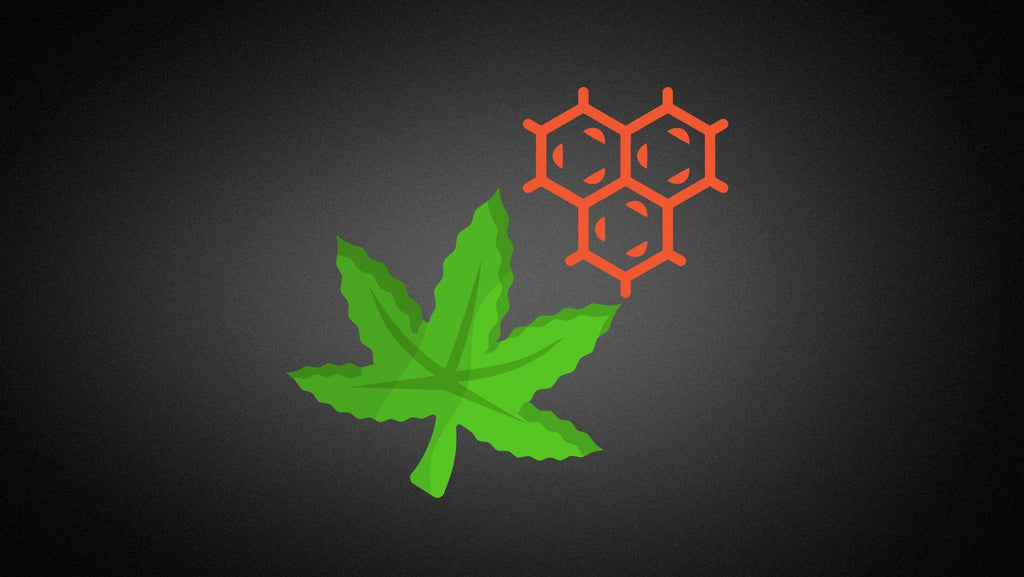
This compound has been studied for its potential to help with inflammation, neuroprotection, and even as an anti-proliferative agent, which might help in cases of diseases like cancer. However, research is still in its early stages, and more studies are needed to fully understand the effects and benefits of THCA.
With this understanding of THCA, you can see how it plays a significant role in the cannabis world, providing possibilities beyond what THC alone can offer.
Let’s keep exploring to uncover more about how THCA and THC differ and how they interact within our bodies.
How Long Does THCA Stay in Your System?
When it comes to understanding how long THCA stays in your system, it's a bit tricky, as it largely depends on several factors including how much and how often you consume it, your metabolism, and your body fat percentage.
But let’s break it down into more digestible parts to make it easier to understand.
Factors Influencing THCA Retention
- Frequency of Use: Regular users of cannabis may find that THCA, along with other cannabinoids, tends to stay in their systems longer compared to occasional users. This is due to the accumulation effect in the body.
- Metabolism: Your metabolic rate plays a critical role. Simply put, if you have a faster metabolism, your body processes substances like THCA more quickly.
- Body Fat: Since THC (and by extension THCA, once converted) is fat-soluble, it tends to stick around longer in individuals with higher body fat percentages.
Detection Windows
- Urine Tests: While most standard drug tests typically look for THC rather than THCA, it’s important to note that THCA can convert to THC as it degrades, which might still show up on a test. For occasional users, THC metabolites (from THCA conversion) can be detected in urine for up to 3 days after use. For regular users, it could be detectable for 30 days or more.
- Blood Tests: THCA itself might not be commonly tested in blood; however, THC (its active form) can be detected for a few hours up to a day.
- Hair and Saliva Tests: These tests are less common for detecting THCA or THC, but theoretically, they can detect drug use for a longer duration, with hair tests showing substance use for up to 90 days.
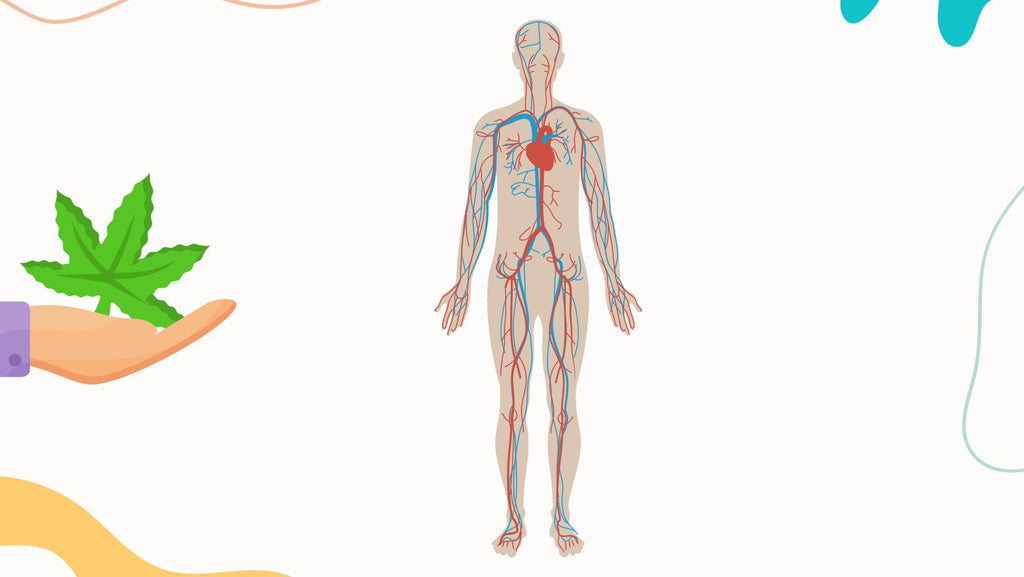
Tips for Flushing THCA from Your System
- Stay Hydrated: Helps flush out toxins.
- Healthy Diet: Focus on fiber-rich foods to aid digestion.
- Regular Exercise: Increases metabolism, aiding in faster elimination.
- Limit Intake: Reducing consumption naturally lowers levels.
- Detox Products: Some products claim to aid in detoxification, though effectiveness varies.
- Medical Consultation: Consider professional advice for personalized strategies.
- Patience: Natural body processes take time; there are no instant fixes.
THCA vs THC: The Key Differences Explained
THCA (Tetrahydrocannabinolic acid) and THC (Tetrahydrocannabinol) are two closely related compounds found in the cannabis plant, but they have significant differences that affect their use, legality, and effects on the body.
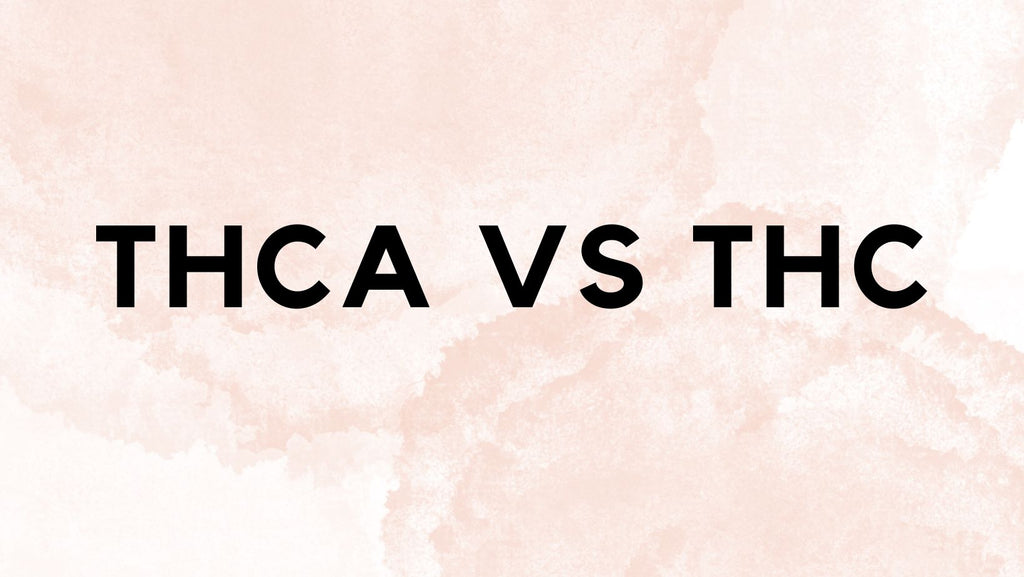
While exploring the differences between THCA and THC, it's crucial to understand how each interacts with the body and the products that utilize these compounds. For instance, THC is known for its psychoactive effects, which make it a key ingredient in products designed to enhance mood and energy, such as Energy Gummies and Stress Gummies.
While they come from the same sources, the conditions under which they exist and their impacts are distinctly different. Let’s dive deeper into these differences, explored under separate subheadings.
Chemical Structure
THCA is a non-psychoactive precursor to THC. In the natural growth of the cannabis plant, THCA is abundant and does not affect the mind or behavior because it does not interact with the brain's receptors as THC does.
When cannabis is heated, through processes like smoking or vaporizing, THCA loses a molecule of CO2 (decarboxylates), converting it into THC, the compound known for its psychoactive properties. This chemical transformation is crucial for the production of psychoactive effects associated with cannabis.
Psychoactivity
The most notable difference between THCA and THC is their psychoactive effects. THCA does not produce psychoactive effects because it does not bind well to CB1 cannabinoid receptors in the brain, which are necessary for creating these effects.
On the other hand, THC is highly psychoactive, directly engaging these receptors to alter mood, perception, and overall consciousness. This fundamental difference is what separates the non-intoxicating raw cannabis consumed for health benefits from the intoxicating forms used recreationally.
Legal Status
The legal distinction between THCA and THC is significant due to their psychoactive differences. In many regions, THC is strictly regulated or illegal because of its psychoactive effects, whereas THCA falls into a legal gray area because it does not cause intoxication.
However, the conversion potential of THCA into THC can complicate its legal status, making it important for consumers and producers to understand local cannabis laws.
Health Benefits
Both THCA and THC offer health benefits, but their applications differ. THCA has been studied for its potential anti-inflammatory and neuroprotective properties, making it a candidate for medical studies and treatments without the psychoactive effects of THC.
THC, however, is widely recognized and used for its efficacy in relieving pain, reducing nausea, and stimulating appetite among patients in medical cannabis programs.
Availability
THCA is most commonly found in fresh, raw cannabis plants. It is accessible in non-decarboxylated forms of cannabis, such as leaves and flowers that have not been dried or heated. THC, in contrast, is most commonly available through cannabis that has been decarboxylated, a process that typically involves heating, making it prevalent in smoked, vaped, or baked cannabis products.
Stability
In terms of stability, THCA is considerably more stable than THC when stored properly in its raw form. It degrades very slowly over time if kept away from light and heat.
THC, however, is more susceptible to degradation; it can oxidize and turn into CBN (Cannabinol), especially when exposed to air and light for extended periods. This makes THC less stable and can affect the potency and quality of cannabis products over time.
Comparison Table: THCA vs THC
| Property | THCA | THC |
|---|---|---|
| Psychoactivity | No | Yes |
| Legal Status | Often legal (check local laws) | Controlled substance (varies by area) |
| Found In | Raw cannabis | Heated cannabis |
| Stability | More stable | Less stable, degrades into CBN |
| Health Benefits | Anti-inflammatory, neuroprotective | Pain relief, nausea control, appetite stimulant |
| Chemical Change | Precursor to THC | Active form after decarboxylation |
The Conversion Process: How Does THCA Turn into THC?
The transformation of THCA into THC is a fascinating process called decarboxylation, which involves the removal of a carboxyl group from the THCA molecule. This chemical reaction typically occurs through the application of heat, making it a central part of cannabis consumption practices like smoking, vaporizing, and cooking.
During decarboxylation, when THCA is exposed to heat (around 220°F or 104°C), it loses a carbon dioxide molecule. This change is not just chemical but functional, altering the molecular structure in such a way that the new THC molecule can now easily bind with CB1 cannabinoid receptors in the brain, thus producing psychoactive effects. The process can occur naturally over time if cannabis is stored at room temperature, but the reaction is much slower and less efficient than when heat is applied.
This conversion is also why cannabis is typically heated in some way before consumption if the desired effect is psychoactivity. Without this process, the raw cannabis containing THCA will not have the same effect as its THC-laden counterpart.
Potential Benefits: THCA vs THC
Both THCA and THC offer a range of potential health benefits, though their effects and mechanisms in the body differ significantly. Here's a detailed exploration of the benefits associated with each:
THCA
- Anti-Inflammatory Properties: THCA has shown potential in reducing inflammation, which can help with conditions such as arthritis and lupus.
- Neuroprotective Effects: Early studies suggest that THCA may protect brain cells from damage, making it a potential candidate for treating neurodegenerative diseases.
- Anti-Nausea: For some, THCA can help reduce nausea without the psychoactive effects of THC, which is beneficial for patients who need clear-headed symptom relief.
- Potential Anti-Proliferative Qualities: THCA has been studied for its ability to inhibit the growth of cancer cells in preliminary studies.
- Non-Psychoactive: Provides medical benefits without causing a high, making it a good option for those who want the therapeutic benefits of cannabis without the psychoactivity.
THC
- Pain Relief: THC is widely recognized for its effectiveness in reducing pain, making it a common choice for chronic pain management.
- Appetite Stimulation: THC is often used to stimulate appetite in patients with conditions like cancer and AIDS, helping combat weight loss and anorexia.
- Sleep Aid: Due to its relaxing effects, THC is frequently utilized to treat sleep disorders such as insomnia.
- Mood Regulation: THC can elevate mood and provide temporary relief from symptoms of depression and anxiety.
- Nausea Control: THC is effective in controlling nausea and vomiting, especially for chemotherapy patients.
Does THCA Get You High? & Does THC Get You High?
THCA, or tetrahydrocannabinolic acid, is a non-psychoactive precursor to THC found in the raw cannabis plant. To understand does THCA get you high or THC, we first need to understand their interaction with our mind and body.
Unlike THC, THCA does not interact with the brain's CB1 receptors, which are crucial for the psychoactive effects associated with a cannabis high. Therefore, consuming THCA in its raw form—such as in fresh leaves or juices—does not produce the "high" feeling.

On the other hand, THC, or tetrahydrocannabinol, is the main psychoactive compound in cannabis that produces the high sensation. When THCA is exposed to heat, through processes like smoking, vaping, or cooking, it converts into THC.
This conversion, known as decarboxylation, activates THC's ability to bind with the brain's cannabinoid receptors, resulting in psychoactive effects that can include euphoria, relaxation, altered senses, and in some cases, anxiety or discomfort.
Thus, while THCA itself does not get you high, its transformation into THC through heat can, making the way cannabis is prepared and consumed pivotal to its effects on the user.
Is THCA Legal?
When discussing the legality of THCA and THC, it’s important to consider the diverse range of products affected by cannabis laws. CBD Lube and CBD Sleep Gummies are examples of products that might be legally complex. Their content of THC, even if minor, could influence their legal status depending on regional laws.
The legal status of THCA is less straightforward than that of THC due to its non-psychoactive nature. In many places, the legality of THCA hinges on the legal status of cannabis itself.
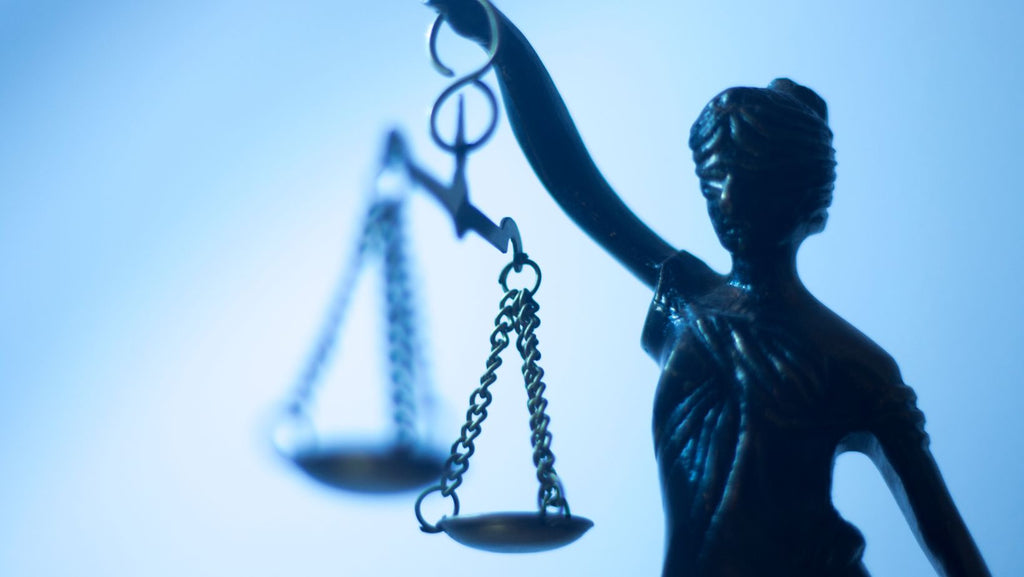
For example, in regions where cannabis is legal, THCA is typically also legal. However, because THCA can convert into THC, it sometimes falls into a gray legal area, especially under federal laws like the 2018 Farm Bill.
In the United States, the legality varies significantly by state:
- States where cannabis is fully legal (recreational and medicinal): In states like California, Colorado, and Washington, both THC and THCA are legal.
- States with medical marijuana only: In states such as Florida and New York, cannabis products including THCA are legal for medical use, provided patients have a valid prescription.
- States with no broad laws legalizing cannabis: In states like Texas and Alabama, THCA, though non-psychoactive, may still be considered illegal because it can convert into THC.
Here’s a comparison table summarizing the legal status of THCA and THC in some key states:
| State | Cannabis Legal Status | THCA Legal Status | THC Legal Status |
|---|---|---|---|
| California | Fully legal | Legal | Legal |
| Colorado | Fully legal | Legal | Legal |
| Washington | Fully legal | Legal | Legal |
| Florida | Medical only | Legal with prescription | Legal with prescription |
| New York | Medical only | Legal with prescription | Legal with prescription |
| Texas | Illegal | Illegal | Illegal |
| Alabama | Illegal | Illegal | Illegal |
Is THCA Psychoactive? Debunking Common Myths
The topic of THCA's psychoactivity is surrounded by misconceptions. Let's clarify some common myths about THCA and its effects.
Myth 1: THCA is just as psychoactive as THC
THCA is not psychoactive and does not produce the "high" associated with THC. Unlike THC, THCA does not bind effectively to the CB1 receptors in the brain, which are necessary for producing psychoactive effects. THCA must undergo decarboxylation, a process of heating that converts it into THC, to become psychoactive.
Myth 2: Eating raw cannabis can get you high
Eating raw cannabis, which contains THCA, does not result in a high because the THCA has not been converted into THC through heat. Therefore, consuming raw cannabis leaves, buds, or fresh juices will not impart the psychoactive effects many associate with smoking or vaping cannabis.
Myth 3: THCA has no therapeutic benefits
While it's true that THCA is non-psychoactive, it is not true that it lacks therapeutic benefits. Research suggests that THCA has potential anti-inflammatory and neuroprotective properties, which could be beneficial for treating conditions such as arthritis and neurodegenerative diseases.
Myth 4: THCA is illegal everywhere because it turns into THC
The legal status of THCA is not universally prohibitive. In regions where cannabis is legal, THCA is typically legal as well. Its legality often depends on the local laws governing cannabis, not solely on its potential to convert into THC.
Myth 5: All cannabis products contain THC
Not all cannabis products contain THC. Many products are designed to provide the benefits of cannabinoids without psychoactive effects, containing predominantly THCA or CBD. These products are particularly appealing to those seeking the medicinal benefits of cannabis without the high.
Myth 6: THCA effects are immediately felt upon consumption
Because THCA is non-psychoactive, any effects it may have do not include the immediate "high" associated with THC. The benefits of THCA, such as anti-inflammatory effects, may take time and consistent usage to become apparent, much like other non-psychoactive dietary supplements.
The Bottom Line
As we wrap up our exploration, we've delved deep into the distinctions between these two cannabinoids, their effects, legalities, and the benefits they offer.
Understanding the non-psychoactive nature of THCA and how it contrasts with the psychoactive properties of THC provides essential knowledge for anyone interested in the science of cannabis.
Whether you're a consumer, healthcare provider, or a curious mind, recognizing these differences can greatly impact your approach to cannabis consumption and its application in daily wellness.
FAQs
What conditions might benefit from the use of THCA?
THCA has been researched for its potential benefits in treating inflammatory diseases, neurodegenerative disorders, and as an anti-emetic, which could make it useful in a variety of therapeutic contexts.
How is THCA extracted from the cannabis plant?
THCA is typically extracted through methods that preserve its acidic form, such as cold extraction techniques, which avoid the heat that converts THCA to THC.
Can you detect THCA in drug tests?
Standard drug tests usually search for THC, not THCA. However, since THCA can convert to THC, there might be implications if conversion occurs before the test.
What is the best way to store cannabis to preserve THCA?
To preserve THCA, cannabis should be stored in a cool, dark place to prevent decarboxylation and degradation into THC.
Are there any side effects associated with THCA?
Currently, research suggests that THCA does not have psychoactive effects and thus does not produce the typical side effects associated with THC, such as anxiety or paranoia.
How does the potency of THCA compare to THC?
While THCA does not induce psychoactive effects, its potential as a therapeutic agent is being explored, though it is generally considered less potent in psychoactive properties compared to THC.
Can THCA be used in cooking?
THCA can be used in cooking, but it is important to note that high temperatures can convert THCA into THC, changing its properties and effects.
Is there a difference in the natural occurrence of THCA and THC in cannabis?
THCA is naturally occurring in fresh, undried cannabis, while THC is typically produced through the drying and heating (decarboxylation) of cannabis containing THCA.
